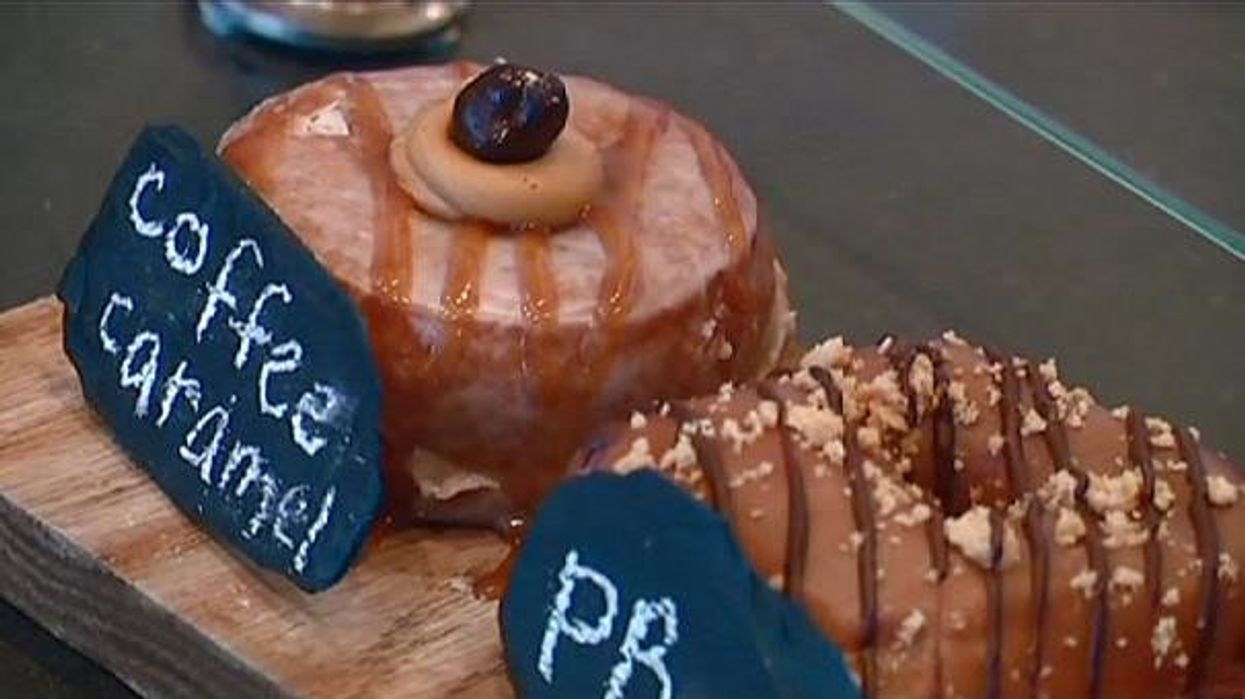A leading dentist has lifted the lid on signs you may be consuming too much sugar and the effects it may have on your oral health.
Dr Nyree Whitley, Chief Clinical Officer at mydentist, has worked in dentistry for more than 20 years and has been Group Clinical Director since October 2017.
While there's nothing wrong in indulging in a sweet treat now and again, especially in the upcoming 'Ber months, too much of a good thing can have a negative impact on your health.

Dr Whitley has shared the key signs it may be time to take a trip to the dentist and ways to combat your sweet tooth:
You’re experiencing increased tooth sensitivity
While sensitive teeth could be down to several factors, it’s worth getting a check-up with your dentist, as it could be a sign you’re eating or drinking too much sugar. In some instances, sensitive teeth could be a sign of gum disease. If this is the case, you may also be experiencing bad breath or a bad taste that doesn’t seem to shift, red or swollen gums, bleeding gums, pain when chewing, or any change in the way that your teeth fit together when you bite.
While gum disease (periodontitis) cannot be cured, it can be managed with proper care and maintenance, such as regular dental cleanings with your local hygienist.
You have toothache
Tooth sensitivity can be caused by a number of factors, but one of the largest is overconsumption of sugar. When you consume foods or drinks that are high in sugar content, the sugar interacts with bacteria in plaque to produce acid. This acid is responsible for tooth decay because it slowly dissolves the enamel creating holes or cavities in the teeth.
If your enamel is damaged either by a pre-existing condition or by consuming foods or drinks high in sugar content, then the sensitive layer of your teeth can be left exposed, causing sensitivity. If your enamel is damaged and you are experiencing tooth sensitivity, your dentist will need to see what the best course of treatment is for you.
You may need a filling, or your dentist may recommend brushing your teeth with fluoride toothpaste twice a day to help your teeth to remineralise the enamel. However, if you are experiencing sensitivity due to consuming drinks or foods that are high in sugar content, it’s advisable that you cut down on your sugar intake, too.
If you do have a sweet tooth, I’d also advise that you wait for at least 30 minutes to an hour before brushing your teeth. Because sugar is high in acidity, your enamel will temporarily be softened. If you brush your teeth too soon after consuming sugar then you’ll spread the acid around and could cause damage to your enamel, which is crucial in shielding your teeth from damage and staining.
White, grey, brown, or black spots appearing on your teeth
If you notice white, grey, brown, or black spots on your teeth, it could be a symptom of tooth decay, which can be caused by drinking and eating too much sugar. As we transition into autumn, it’s now more common for many coffee-based drinks to contain high levels of sugar, so it’s advisable to keep consumption of these drinks to a minimum, or as a treat, rather than reaching for them every day.
White spots are not always necessarily harmful to your teeth, although they may be an early warning sign of tooth decay. If you notice white spots on your teeth then make sure you speak to your dentist to establish why they may be occurring, just to be on the safe side. They could also be caused by fluorosis – an overexposure of fluoride to the teeth, early tooth decay, or congenital conditions.
Top takeaway: Cavities could be a sign to cut back on treats
It’s no secret that consuming too much sugar can have a harmful effect on our overall health, but it is also the leading cause of tooth decay in both children and adults. When we eat sugar, it interacts with the bacteria in plaque to produce acid, which can slowly dissolve the enamel on our teeth and create holes or cavities.
If you have a naturally sweet tooth, try to enjoy sugar in balance and opt for unprocessed forms of sugar where possible. If you find that you usually reach for sweets, try switching them out for dark chocolate and enjoy it in moderation to maintain a healthy smile.
How to join the indy100's free WhatsApp channel
Sign up for our free Indy100 weekly newsletter
Have your say in our news democracy. Click the upvote icon at the top of the page to help raise this article through the indy100 rankings.














